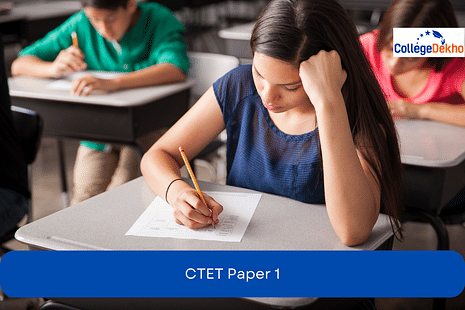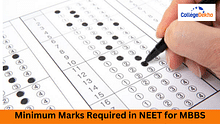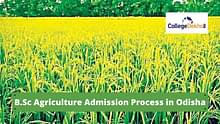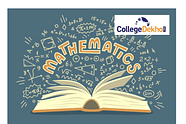
CTET Paper 1 2024 will comprise five sections: Child Development and Pedagogy, Language I, Language II, Mathematics, and Environmental Studies. The type of questions that will be asked in CTET Paper 1 2024 are multiple-choice questions. On the other hand, CTET Paper 2 2024 is conducted for candidates with aspirations of becoming teachers for classes 6 to 8. Those appearing for the upcoming CTET January Paper 1 must have a complete understanding of the section-wise weightage, marking scheme, and types of questions asked in CTET Paper 1.
CTET 2024 July exam will mark the 17th edition of this exam, serving as a crucial assessment of candidates' eligibility for teaching roles in government and government-aided schools. Let's take you through the section-wise weightage, marking scheme, and types of questions asked in CTET Paper 1.
CTET Paper 1 2024: Highlights
Candidates interested in becoming teachers at the primary level i.e. for classes 1 to 5 need to appear for CTET Paper 1. The important highlights of the CTET Paper 1 are as follows:
Particulars | Details |
|---|---|
CTET Paper 1 Exam Mode | Offline |
CTET Paper 1 Exam Structure |
|
CTET Paper 1 Exam Duration | 2 hours and 30 minutes |
CTET Paper 1 Number of Questions | There are a total of 150 questions in CTET Paper 1, with 30 questions in each section. |
CTET Paper 1 Marking Scheme |
|
CTET Paper 1 Syllabus |
|
CTET Paper 1 2024 Exam Pattern
As we have already highlighted above, in the CTET exam pattern 2024 , Paper 1 is divided into 5 sections, each consisting of 30 questions, taking the total number of questions to 150. The maximum mark for each correct response is 1. The comprehensive pattern for CTET Paper 1 has been represented in the table given below:
CTET Paper 1 Sections | No. of Questions | Marks |
|---|---|---|
Child Development & Pedagogy | 30 | 30 |
Language I | 30 | 30 |
Language II | 30 | 30 |
Mathematics | 30 | 30 |
Environmental Studies | 30 | 30 |
Total | 150 MCQs | 150 Marks |
Also Read: CTET Passing Marks 2024
CTET Paper 1 2024: Weightage and Types of Questions Asked
The weightage of each section in CTET Paper 1 is the same i.e. 30 marks. Here we have provided the information regarding the weightage and types of questions that are likely to be asked in CTET Paper 1 2024:
Child Development and Pedagogy
A total of 30 questions are asked in the Child Development & Pedagogy. Topics like Child Development, Learning, and Pedagogy are of prime importance. The topic-wise weightage has been provided in the table given below:
Subjects/ Units | Topics |
|---|---|
Child Development (Primary School Child) {15 Questions} |
|
Concept of Inclusive Education and Understanding Children with Special Needs {5 Questions} |
|
Learning and Pedagogy {10 Questions} |
|
CTET Paper 1 Language Paper
CTET Paper 1 Language | |||
|---|---|---|---|
English | Mizo | Gujarati | Tamil |
Hindi | Nepali | Kannada | Telugu |
Assamese | Oriya | Khasi | Tibetan |
Bengali | Punjabi | Malayalam | Urdu |
Garo | Sanskrit | Manipuri | Marathi |
There will be questions based upon comprehension, educational psychology, grammar and other such themes in both sections of language.
CTET Paper 1 English Syllabus
The CTET Paper 1 English syllabus aims to assess the candidate's proficiency in English language comprehension, as well as their ability to teach English at the primary level. Here's a general overview of the topics covered in the CTET Paper 1 English section from CTET syllabus 2024:
Language Comprehension: This section focuses on testing your understanding of the English language, including your ability to read and comprehend passages.
Reading Comprehension: Questions based on a passage, including understanding the main idea, specific details, vocabulary, inference, etc.
Pedagogy: This section assesses your understanding of teaching English as a language subject at the primary level.
CTET Paper 1 Language 1 and 2 Syllabus
CTET Paper 1 Language Comprehension | Reading unseen passages - two passages one prose or drama and one poem with questions on comprehension, inference, grammar and verbal ability (Prose passage may be literary, scientific, narrative or discursive) |
|---|---|
CTET Paper 1 Pedagogy of Language Development |
|
CTET Paper 1 Mathematics Syllabus
The Mathematics syllabus for CTET Paper 1 is designed to assess the candidate's understanding of mathematical concepts at the primary level and their ability to teach mathematics effectively to young learners. Here's a general overview of the Mathematics syllabus for CTET Paper 1:
CTET Paper 1 Content |
|
|---|---|
CTET Paper 1 Pedagogical issues |
|
CTET Paper 1 Environmental Studies Syllabus
The Environmental Studies (EVS) syllabus for CTET Paper 1 is designed to assess your understanding of environmental concepts, as well as your ability to teach environmental studies effectively to primary-level students. Here's an overview of the EVS syllabus for CTET Paper 1:
CTET Paper 1 Content |
|
|---|---|
CTET Paper 1 Pedagogical Issues |
|
CTET Paper 1 2024: Preparation Tips
The profession of a government teacher has witnessed increasingly intense competition in recent years due to the demands of maintaining a work-life balance. Consequently, excelling in the CTET examination necessitates a meticulously crafted strategy to navigate this competitive landscape effectively. Here, we offer comprehensive preparation tips for CTET to aid candidates in their journey toward success.
- Familiarize Yourself with the Syllabus and Exam Pattern: Commence your preparation journey by thoroughly understanding the CTET syllabus, readily available on the official website. Additionally, acquaint yourself with the updated examination pattern outlined on the website.
- Emphasize Understanding Child Development and Pedagogy: Recognizing that the CTET exam evaluates candidates' aptitude for teaching, prioritize studying the theories of child development and pedagogy. A profound comprehension of child development is fundamental to becoming an effective educator.
- Utilize NCERT Books and Study Material: Opt for NCERT textbooks as primary study materials, given that CBSE conducts the CTET exam. It's reasonable to expect that questions in the exam will directly or indirectly draw from NCERT books. Thoroughly delve into the topics outlined in the syllabus.
- Supplement Your Preparation with Recommended Books: Complement your NCERT study with resources such as "Child Development and Pedagogy for CTET & TETs" by Arihant Publications. Additionally, Arihant offers language preparation books tailored for CTET, which can be beneficial after covering NCERTs.
- Specialized Books for Specific Sections: Leverage specialized books like "Environmental Studies (EVS) Exam Goalpost for CTET" for the EVS section. For mathematics, standard books such as RD Sharma or R.S. Aggarwal can serve as effective study aids.
- Leverage Previous Year Papers and Mock Tests: After completing the syllabus, familiarize yourself with CTET's previous year's papers to gain insights into question patterns. Regularly engage in solving mock tests to assess your preparedness level and identify areas for improvement.
- Prioritize Consistency: Recognize that CTET attracts a significant number of aspirants, intensifying the competition. Consistency in your preparation endeavors is paramount. Those who maintain steadfast dedication are more likely to achieve success amidst this competitive landscape.
By adhering to these refined preparation strategies, candidates can enhance their readiness for the CTET examination, thereby increasing their chances of securing a favorable outcome. Candidates must also check out the articles mentioned below to learn more about CTET 2024!
Related Articles:
Candidates who have any doubts regarding the CTET Exam 2024 can ask their queries on Collegedekho QnA Zone. For more updates regarding CTET stay tuned with us!

















Similar Articles
MAH B.Ed CET 2024: Exam Dates, Application Form, Eligibility, Pattern, Result, Counseling
Dos and Don'ts for Odisha B.Ed Counselling 2024
How to Prepare for UP B.Ed JEE 2024 in 30 Days?
RIE CEE 2024 Exam Day Guidelines
List of B.Ed Entrance Exams 2024: Dates, Application Form, Eligibility, Syllabus
List of Documents Required to Fill UGC NET 2024 Application Form: Image Upload, Specifications